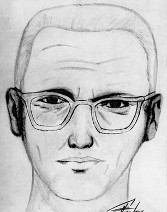September, 2014
Go Ahead, Make My Session
By Michael J. Katin, MD
Considering its paucity of decent restaurants, poor climate, mediocre hotels, and outdated infrastructure, San Francisco had not seemed to have been desirable as a destination for organizations other than the American Society of Radiation Oncology, and it therefore comes as a surprise that is has also been selected as the location for the 100th Annual Meeting of the American Academy of Periodontology (note that periodontology outdates radiation oncology, at least as an organized specialty), as well as of the Clinical Congress of the ultimate medical organization, the American College of Surgeons. The Moscone Center will also host the 47th Annual Fall meeting of the American Geophysical Union, anticipated to attract more than 22,000 earth and space scientists, working on problems that make our look insignificant. Deciding on proper fractionation for partial breast irradiation may not be a high priority after the Yellowstone supereruption.
Is it possible that ASTRO's choice of San Francisco has attracted attention of other groups and will help to set off a renaissance in this otherwise declasse and deteriorating area? It seemed appropriate for ASTRO to schedule its 56th Annual Meeting in the area which is considered the wellspring of "modern" radiation therapy (realizing that in the 1960's "modern" radiation therapy was considered the use of Cobalt-60 for teletherapy), thanks to the efforts of Henry Kaplan, Malcolm Bagshaw, Eli Glatstein, and associates at Stanford. It is also to be appreciated that the advances in the application of computer technology that resulted from the interaction of brilliant innovators in the greater San Francisco Bay area allowed our equipment to be highly technically advanced, with the result that today it is not possible to treat patients on a linear accelerator for a full day without needing attention because of a computer dysfunction.
For those brave enough to risk the hazard of travel to the ASTRO Annual Meeting, it would be wise to remember that this is an area known for a high crime rate, without which there would have been no indication for films such as the "Dirty Harry" series, and "Bullitt," starring Steve McQueen (later a victim of mesothelioma, despite receiving complementary therapy). This was even enough of a problem that it generated a TV series, "The Streets of San Francisco," with Karl Malden and Michael Douglas.
There have been no announcements as to whether Michael Douglas will appear at ASTRO's annual meeting to discuss his treatment for cancer. He and his wife, Catherine Zeta-Jones, recently spoke at the 5th World Congress of the International Federation of Head and Neck Oncologic Societies in New York. According to the news reports, he underwent "seven weeks of treatment that included chemotherapy" for stage 4 throat cancer, after it had initially been misdiagnosed as tongue cancer. His disclosures on this have been inconsistent, with the diagnosis of "throat cancer" and "tongue cancer" going back and forth over the past few years. In another news report about his treatment for "throat cancer," he described receiving radiation therapy that "shut down his salivary ducts for at least a year or two." The New York Post, however, later carried a story that he admitted that he never had "throat cancer," but that it was, indeed, "tongue cancer." To make it even more interesting, he describes that he had nine months of symptoms without a diagnosis before he was seen at the Jewish Hospital of McGill and diagnosed as having "throat cancer," for which he was later treated at Memorial Sloan-Kettering with chemotherapy and radiation, but with the concern that at some point he might have had part of his tongue removed "if other treatments failed." He has praised the Canadian health care system, with the notation that he had not had any delay in getting in to be seen by the Chair of the Department of Otolaryngology, and he has now become a major fundraiser for McGill University.
Perhaps if ASTRO's annual meeting were being held in a more favorable location, such as Cleveland, Mr. Douglas might have made an effort to tell his story to the radiation oncology community, particularly since the contribution of our treatment modality was overlooked by most of the media reports, but it would seem probable that his exposure to the crime scene in San Francisco from his TV series would lead him to want to keep his distance.
Or will he be staying away because of earthquakes? Fortunately, there haven't been any severe earthquakes in the area since August 24. Or perhaps because of the polluted air, occasionally worse than Beijing, despite years of environmental efforts to control this. Add to all this that there is an ongoing severe drought, requiring water restrictions, and one's trip to San Francisco becomes even more likely to be memorable.
Or is it because getting around San Francisco is another problem? Whether by cable car, automobile, or walking, there is not secure way to do this. Even parking may be a challenge!
If attendees are fortunate enough to escape the streets of San Francisco, they should remember that the San Francisco Bay area has been home to at least 11 serial killers, and that the most notorious of all, the Zodiac Killer, has not been arrested.
With all these considered, the 56th Annual Meeting of the American Society of Radiation Oncology should be an exciting event. If you're going to San Francisco, and if you can avoid the air pollution, hazardous restaurants, and dehydration, there is one more way to increase the chance of returning home safely. Clint Eastwood, "Dirty Harry" himself, is now endorsing Krav Maga This could be the best way of ensuring one's security. I don't know if there are any crash courses available on the internet, but it would be worth checking. Then it would be time to decide if you feel that going to San Francisco is worth it.
You just have to ask yourself, "Do I feel lucky?"
